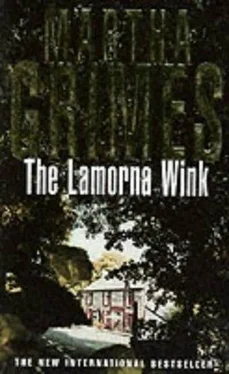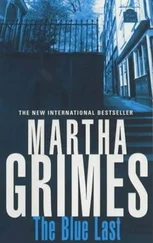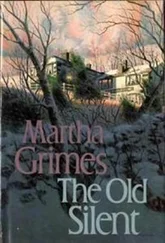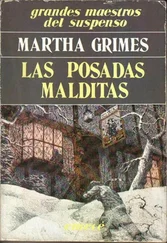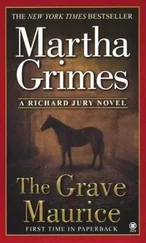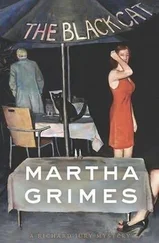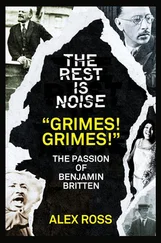Martha Grimes - The Lamorna Wink
Здесь есть возможность читать онлайн «Martha Grimes - The Lamorna Wink» весь текст электронной книги совершенно бесплатно (целиком полную версию без сокращений). В некоторых случаях можно слушать аудио, скачать через торрент в формате fb2 и присутствует краткое содержание. Жанр: Детектив, на английском языке. Описание произведения, (предисловие) а так же отзывы посетителей доступны на портале библиотеки ЛибКат.
- Название:The Lamorna Wink
- Автор:
- Жанр:
- Год:неизвестен
- ISBN:нет данных
- Рейтинг книги:5 / 5. Голосов: 1
-
Избранное:Добавить в избранное
- Отзывы:
-
Ваша оценка:
- 100
- 1
- 2
- 3
- 4
- 5
The Lamorna Wink: краткое содержание, описание и аннотация
Предлагаем к чтению аннотацию, описание, краткое содержание или предисловие (зависит от того, что написал сам автор книги «The Lamorna Wink»). Если вы не нашли необходимую информацию о книге — напишите в комментариях, мы постараемся отыскать её.
The Lamorna Wink — читать онлайн бесплатно полную книгу (весь текст) целиком
Ниже представлен текст книги, разбитый по страницам. Система сохранения места последней прочитанной страницы, позволяет с удобством читать онлайн бесплатно книгу «The Lamorna Wink», без необходимости каждый раз заново искать на чём Вы остановились. Поставьте закладку, и сможете в любой момент перейти на страницу, на которой закончили чтение.
Интервал:
Закладка:
Three of the walls were papered in a serene gray and the fourth, with a fireplace at its center, was given over to shelves for books and niches in which were displayed various pieces of sculpture: Etruscan heads, marble busts. A mahogany sideboard, flanked by walnut armchairs, sat beneath a portrait of an undistinguished old man with a churlish look that said he’d sooner be anywhere at all other than sitting for his portrait. The hound at his feet sported a similar look.
Except for the sculpture, nothing else suggested any interest in the exotic; the room was as English as English could be. Easy chairs and sofa were covered in linen and chintz, patterns of bluebells or intertwining ivy and hollyhocks. One of the chairs was drawn up to a kidney-shaped writing table with marquetry inlay. Against one wall between long windows was a campaign chest, a fine example of its kind.
“Isn’t it lovely?” trumpeted Esther Laburnum. She was a large woman with a boisterous voice, the sort that carries through a restaurant and condemns the other diners to hearing its business.
The room looked so lived-in, thought Melrose. It was as if the occupants, hearing the approach of Mrs. Laburnum’s Jaguar, had decided to run and hide.
“Is the rest of the house this comfortably furnished?” When she assured him it was, Melrose said, “But the owners have left so many of their personal belongings behind.” He nodded toward the portraits and pictures.
Esther Laburnum agreed but said the house was on the market when she’d joined Aspry and Aspry. It had been on the market for some time now, and she hadn’t known the owners. She was new to the area. “In any event, the owners are apparently open to letting it or selling it or some combination of both. I mean, if you’d want to let it for a while to see how you get on.”
They walked from the living room to the dining room, in which stood a twin-pedestaled dining room table and two sideboards opposite each other on facing walls. If he pulled out drawers and opened cabinet doors, he bet he would find silver, napkins, china.
From there they went to the rest of the house and the study (or, as Esther Laburnum called it, the “snuggery” or “snug”). Floor-to-ceiling bookshelves lined three walls. In front of one a refectory table of English oak stood upon a carpet that Melrose thought he recognized as Turkestan (a payoff of those countless hours spent being taught antiques by Marshall Trueblood). Against the fourth wall sat a large desk, its top covered with the tools of writing: letters, accounts, journals.
It was a smallish and clearly much-used room. One could almost sense the impress of bodies against the stuffed armchairs. “Snuggery” here was rightly applied. With the fireplace alight, especially on days such as this one (rain-lashed, wind-lashed, he thought in melodramatic terms), snug is what he felt. Melrose walked around checking the many leather-bound or gaudily jacketed newer books; it was quite a library, one appealing to diverse tastes. One end of the refectory table held another half-dozen small silver-framed pictures.
“Are these the family?” he asked her, picking up first one and then another.
“I expect so. Would you look at that fireplace mantel! What carving!”
Melrose followed his own line of thought. “I don’t understand why people would go off and leave behind such personal things. One ordinarily tucks them safely away in a locked cupboard or trunk or some such place. One doesn’t leave them out.” He sounded quarrelsome, as if such behavior shouldn’t be condoned.
Mrs. Laburnum answered with no more than an uninterested “Um,” leaving Melrose to peruse this little hoard of pictures and pursue his little mystery. There were four or five people represented here, all informally caught on film. The core group appeared to consist of a fortyish couple, very handsome; an elderly man who looked like the one in the portrait-yes, there was a trace of that squinty look; a pretty little girl of perhaps six or seven; and a little boy, probably a year or so younger, shown with his father on a sailboat. Several other pictures were taken aboard this boat. Melrose wondered how well off they were; judging by this house and the size of the boat, very. One or the other of these four was in the other photos with relations and friends. The grand-parents seemed to be represented wholly by the old man.
Rarely did Melrose envy other people, for at home he was surrounded by friends more or less like him-unmarried, childless, unattached, really-and if anyone in his circle was to be envied it was he himself, with his manor house, his land, his money. What struck him about the family in these snapshots was that they seemed so hugely happy. Even the old man finally dropped the bad-humored look. Their smiles were not the camera’s but their own. Melrose envied them no end.
“Lovely little family, aren’t they?”
He had forgotten Esther Laburnum in his absorption in the pictures.
“So sad about the children. I believe they drowned.”
“Drowned?” Melrose took this awful news almost as he would a personal loss.
“It was all extremely sad. It happened-oh, five years ago. What must have made it worse for them-the parents-was that they were out when it happened. I wasn’t here then.” She had already told him this a couple of times. It was as if she were trying to dissociate herself from the house and its owners. “Would you like to see the upstairs now?”
He told her he would. Yet he hated leaving the father and mother to the hellish knowledge that they hadn’t been around to save their children. Obediently, Melrose followed Esther Laburnum (in whom he detected now an impatience to get the house “viewed” and out of here).
There were five bedrooms, none of which Melrose lingered in, but just glanced around standing at the door. He saw some more framed photographs in the master bedroom and would have liked to have a look at them, but with the agent at his heels like a terrier, he didn’t.
One room facing the sea intrigued him. It was entirely empty except for a grand piano. Sheet music sat on the piano stand and lay on the floor, as if a breeze had drifted it there. Yet he detected no drafts; indeed, the house was amazingly tight, given its age and size.
“I believe he was a musician; I believe he wrote music.”
Melrose heard the emphasis on “believe,” as if she didn’t want to take the responsibility for supplying incorrect data. He walked over to look at the music on the piano stand. He agreed with her. “This looks newly composed-was, I mean, before they left.” Melrose played no instrument, but he could read music and could pick out tunes with one finger. He sat down at the piano and did so, painstakingly. It ended right in the middle of a bar on the second page. It was as if the composer had been temporarily called away.
“I don’t want to hurry you, Mr. Plant. But I dare-say you do want to have a look outside at the grounds.”
What he really wanted was for her to go away and leave him here, trying to pick out this music and to hear a whole orchestra supplying the background in his head.
He rose and followed her.
The day was uneven, uncertain. Intermittently, rain stopped and started, becoming more gauzy and misty as the afternoon wore on. Each time it stopped, weak sunlight tossed a veil of light across the gravel, barred by the density of the woodland. The light would have to be stronger to see through those branches.
Melrose was drawn by the rasp of the water and stood on the rocky promontory looking down at the sharp collapse of water spewing against stone. A stairway had been fashioned from the cliff and led down to the sea. Light glimmered on the wet stones. Melrose stood there looking and feeling he was getting down to the bedrock of existence. Unbidden, a few lines of poetry came to him about a woman looking out to sea: Ever stood she, prospect impressed. Who had written it, Hardy? Perhaps he’d find the poem in Seabourne’s library. He was pulled from this reflection by a voice fluting at his elbow.
Читать дальшеИнтервал:
Закладка:
Похожие книги на «The Lamorna Wink»
Представляем Вашему вниманию похожие книги на «The Lamorna Wink» списком для выбора. Мы отобрали схожую по названию и смыслу литературу в надежде предоставить читателям больше вариантов отыскать новые, интересные, ещё непрочитанные произведения.
Обсуждение, отзывы о книге «The Lamorna Wink» и просто собственные мнения читателей. Оставьте ваши комментарии, напишите, что Вы думаете о произведении, его смысле или главных героях. Укажите что конкретно понравилось, а что нет, и почему Вы так считаете.
